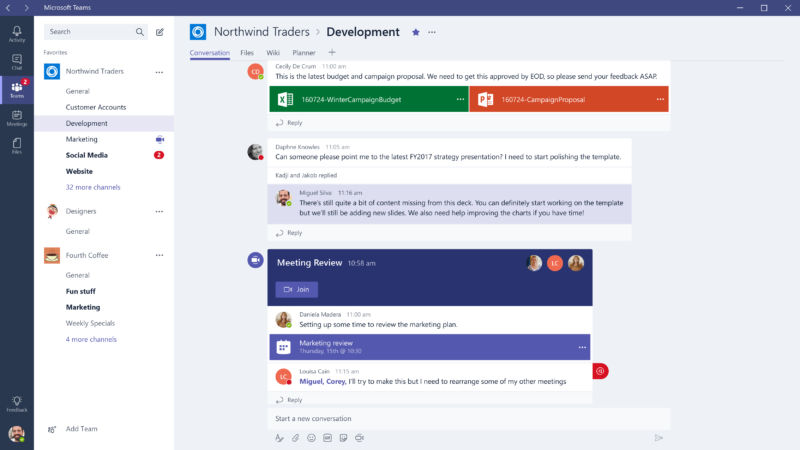
Microsoft’s IRC-like, Slack-like collaboration tool Teams looks likely to pick up a couple of key features that will make it much more competitive.
The first of these is guest access. Currently on Teams, every person within a chat room must have an account in an organization’s Azure Active Directory. This makes working with outside collaborators awkward, as many of these may not have, and may not want, such an account. Guest access was announced last September, which would allow organizations to create Teams accounts using any email address rather than specifically requiring an Azure AD account; the feature is finally being rolled out next week. Organizations will have to explicitly enable it for their systems, but once they do, their Teams instance will support guest accounts.
The second big feature is freemium pricing. Slack has made great inroads by enticing organizations to use it for free, and once they’re hooked, getting them to pay for longer history and richer features. Teams is currently tied to Office 365; even with the guest access feature, there must be at least one paid Office 365 account to create an instance. However, it looks like this is set to change, and perhaps sooner rather than later. Brad Sams at Petri reported on signs that Microsoft is going to offer a freemium version, with a basic product available for free and paid upgrades to access further features. Indications are that freemium users will need a Microsoft Account to use the service, though what other restrictions will be applied is as yet unknown.
Should Microsoft follow through, the move will fill one of the biggest gaps that the product has relative to Slack, and it should make Teams—and perhaps even Office 365—much more approachable.
https://arstechnica.com/?p=1267521

